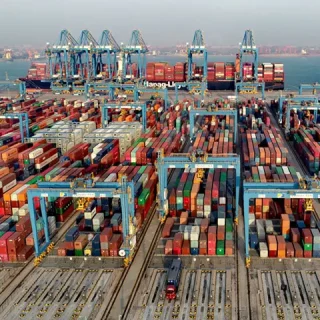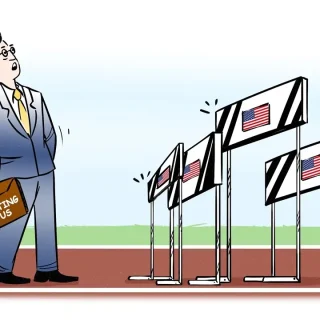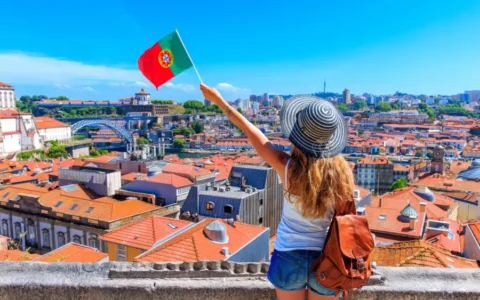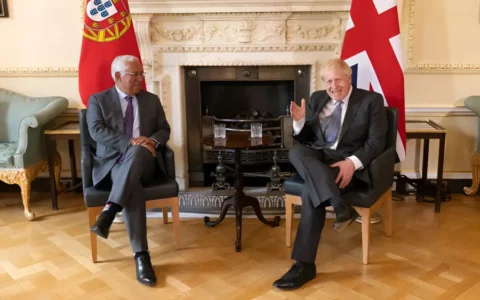Since the 1980s, when the tiny Caribbean nation of St. Kitts and Nevis launched the world’s first citizenship-by-investment program, the global elite have been collecting passports almost like they collect luxury cars. Today, it’s not uncommon for wealthy individuals to hold four to eight citizenships, giving them unmatched freedom to move, invest, and shelter assets worldwide.
These so-called “golden visa” programs—offered by countries like Portugal, Malta, New Zealand, Turkey, and Dominica—allow the wealthy to purchase residency or citizenship for a set investment. For high-net-worth individuals, the appeal is clear: geopolitical insurance, tax optimization, and mobility.
“It’s no different than choosing a car,” said Dominic Jones of Greener Pastures New Zealand, which markets a $2.8 million residency option as a secure “Plan B” for global uncertainty.
Americans Now Leading the Exodus
Interestingly, it’s no longer just billionaires from unstable countries seeking a second passport. A growing number of Americans are now driving demand for golden visas. A 2024 survey by Get Golden Visa found that 46% of Americans pursuing residency or citizenship abroad cited political and social unrest in the U.S. as their primary motivation.
“We’re seeing a surge in inquiries any time major events happen—mass shootings, court rulings, elections,” said Marco Permunian, founder of Italian Citizenship Assistance. “It’s not about left or right anymore—it’s about general instability.”
A growing prepper mindset among the ultra-wealthy is fueling this trend. Alongside bunkers and private jets, multiple passports have become part of a broader exit strategy for those planning for the worst.
Trump’s “Gold Card” Proposal
Sensing the shift, former President Donald Trump proposed scrapping the longstanding U.S. EB-5 visa program—which requires a minimum $800,000 investment and job creation—in favor of a streamlined “Gold Card” option. For $5 million, applicants could gain residency without the complexities of business investments or job creation.
“You’ve got a green card—this is a gold card,” Trump said, promoting it as an easier route to U.S. citizenship for the ultra-wealthy.
But there’s a catch: unlike most countries, the U.S. taxes global income, even for residents living abroad. That’s a major deterrent for international billionaires with foreign income, says Murat Coskun of Get Golden Visa. “If gold card holders didn’t have to pay U.S. taxes on overseas income, it would be a huge draw,” he noted.
A Changing Reputation
Traditionally, the U.S. was a top destination for wealthy immigrants seeking safety, opportunity, and a foothold in a global economic superpower. Through programs like the EB-5, foreign investors—particularly from Asia and Latin America—flocked to the U.S.
But that trend may be reversing.
“Right now, many are hesitant,” said Hector Diaz, a Miami-based immigration attorney. “People are scared of the immigration vibe the U.S. is putting out.”
Instead, investors are flocking to alternative destinations with lower price tags, less red tape, and no global tax obligations. Programs in Portugal, Greece, Malta, and Caribbean nations like St. Kitts and Nevis, Dominica, and Antigua and Barbuda offer appealing packages, often for less than $250,000–$500,000.
“These programs are popular because of the value they offer,” said Coskun. They grant visa-free access to large swaths of the globe—like the 29 countries of the Schengen Zone—and often don’t require long stays or deep integration.
A Hedge Against Chaos
For many wealthy individuals, golden visas are less about lifestyle and more about risk management. Basil Mohr Elzeki, managing partner at Henley & Partners, describes them as “a hedge against geopolitical risk” and a “diversification play” for business operations and personal security.
In a world increasingly defined by de-globalization, political unrest, and economic volatility, having a second (or third) passport is seen as a crucial tool in any elite prepper’s toolkit.
And while Trump’s proposed Gold Card could lure some back to the U.S., its high cost and complex tax implications may limit its appeal to only the wealthiest 0.5%—those with the resources to play the citizenship game at the highest level.
Reference link: https://nypost.com/2025/03/21/lifestyle/inside-billionaire-race-to-collect-the-most-citizenships/










